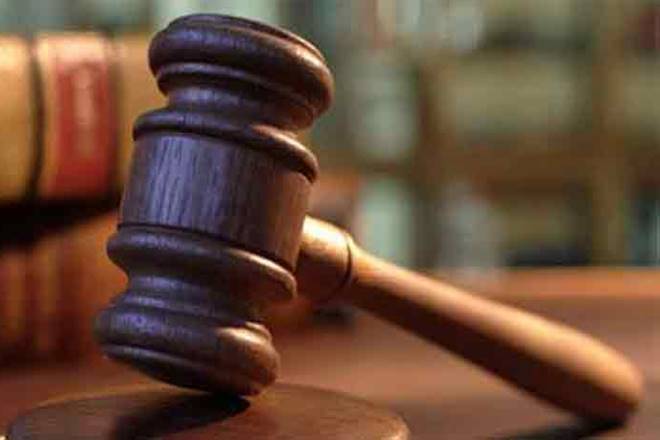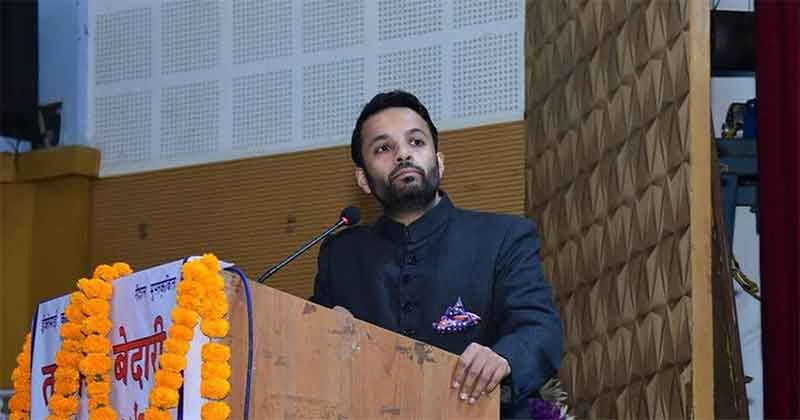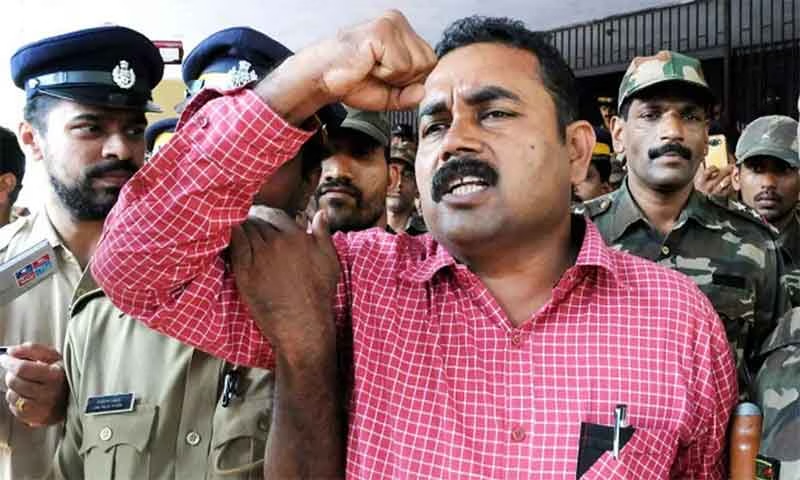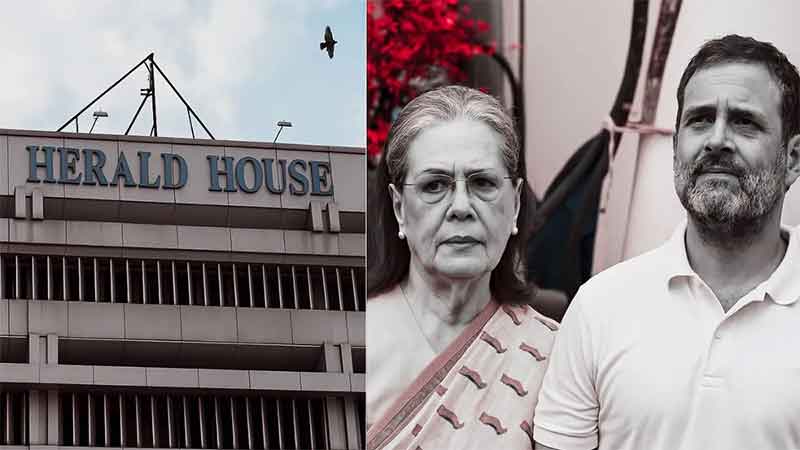
This is not just an issue of freedom of speech and expression. New criminal law-related serious offenses, can harass journalists. Jail is simple, while bail is almost impossible, especially when CM or PCC complains.
The Government and Ruling party made the police arrest three journalists in Telangana—Pogadadanda Revathi, Thanvi Yadav, and another journalist of the user behind the ‘NippuKodi’ X account—has raised concerns about media crime. They were charged under various sections of the Bharatiya Nyaya Sanhita (BNS) 2023 and the IT Act for allegedly posting abusive content against Telangana Chief Minister Revanth Reddy. Critics argue that the charges are politically motivated and part of a broader pattern of suppressing dissent.
The criminal charges and challenges of arrest
When the Congress party’s social media head wanted to complain against
journalists, there is nothing one could say. The Congress made the
following charges:
- Publishing obscene material (IT Act, Section 67)
- Organized crime (BNS, Section 111)
- Criminal conspiracy (BNS, Section 61(2))
- Spreading public mischief (BNS, Section 353(2))
- Intentional insult to provoke a breach of peace (BNS, Section 352)
One crime and one punishment
The national policy should be ‘one commission one punishment’. Even assuming that these journalists are proven guilty, how many crimes can be filed against them? How many years should each suffer in jail? Can we punish the writers under different, separate crimes and be pressed to send them to jail for a long time?
Any alternative to ‘arrest’?
Can we say there is no alternative to ‘arrest’? It is difficult to judge a writer ‘guilty’ without charge. We know that criminal jurisprudence has survived on ‘pendency’ for decades. Hence, we need ‘bail’. It is costly, time-consuming, and harassing. The writers can be taken for questioning, instead of ‘arresting’. This was what many judgments directed to summon through a notice, without curbing the freedom of speech.
In the name of using abusive language, the Government, Chief Minister, or his party representative is the complainant, and the ‘journalist’ can be straightway sent to jail at an early hour, on Saturday and Sunday, the ‘liberty’ of a writer has to wait for more than 2 days, or beyond. If the fan of a Chief Minister or PCC representative files a case, the police machine runs jet speed to send them to jail. Abuse, publishing obscene material to organized crime and criminal conspiracy, spreading rumours to incite hatred, derogatory, etc., should be condemned. If the writer is from the ‘opposition party’ he may not get any support from the police and government and he will walk to lockup or jail. This is not jurisprudence.
Naturally, made a huge noise the opposition parties condemned the arrests, calling them a sign of increasing intolerance toward criticism, comparing the situation to an ‘Emergency-style rule’ in Telangana. Pogadadanda Revathi, the Managing Director of Pulse News, Thanvi Yadav, a reporter for their channel the user of an X account titled
‘NippuKodi’ were arrested by Hyderabad Police’s Cyber Crime division were given bail on 12th March. The allegation was “posting and amplifying abusive content against the Chief Minister Revanth Reddy”. Three have been “taken into custody after a complaint from the chief of the Congress’ state social media unit, and face serious charges – from publishing obscene material to organized crime and criminal conspiracy, spreading rumours to incite hatred, derogatory and abuse remarks about
the Chief Minister”. It was contended that it constituted a ‘highly provocative ‘post, one has the potential to incite violence and is a ‘deliberate attempt by Pulse TV to defame and spread propaganda’. The opposition termed that the ruling party Congress would be being ‘intolerant of criticism’ and allowing an extreme level of intolerance saying ‘it feels like a state of Emergency has returned in Telangana. All of the journalists felt that we needed an ‘opposition’ to point out the violation of the freedom of speech claiming Ms. Revathi had been arrested illegally, which included police raiding her home at 5 am and showed the Congress Emergency-style rule. More than the ‘criminal action’ the process is serious on the journalists, in higher ‘punishment’ proportion. Unless one could not pay the three people have to furnish two sureties, besides appearing before the police twice a week and surrendering their passports. The 12th Additional Chief Metropolitan Magistrate (ACJM called Nampally Criminal Court) has rejected the petition. The point to be noted is it violated Supreme Court guidelines and that the charges were false and politically motivated and ‘Section 111’ of BNS does not attract the case as it’s not an organized crime, though the Court rejected which later relieved the bail.
In the Bharatiya Nagarik Suraksha Sanhita (BNSS), bail provisions are primarily addressed in Sections 480, 482, and 483. Section 480 deals with bail in non-bailable offenses, Section 482 covers anticipatory bail, and Section 483 grants special powers to High Courts and Courts of A session regarding bail.
Bail Conditions and Legal Issues
The arrested journalists were granted bail on March 12 but under strict conditions. They had to provide two sureties, appear before the police twice a week, and surrender their passports. The court rejected an appeal against these conditions.
Legal experts argue that the charges, particularly under Section 111 of BNS (organized crime), do not apply in this case. Additionally, the arrests may have violated Supreme Court guidelines, which emphasize fair procedures and protection of individual freedoms.
Understanding Bail under BNSS
The Bharatiya Nagarik Suraksha Sanhita (BNSS), which replaced the old Criminal Procedure Code (CrPC), governs bail provisions in India:
Section 480: Covers bail for non-bailable offenses, allowing
courts to release an accused if their trial is delayed beyond 60 days.
- Section 482: Deals with anticipatory bail, allowing individuals to
- seek protection from arrest in non-bailable offenses.
- Section 483: Grants special powers to High Courts and Sessions
- Courts to impose specific bail conditions.
Bail is a fundamental right tied to Article 21 of the Indian Constitution (Right to Life and Liberty) and Article 11 of the Universal Declaration of Human Rights, which presumes a person is innocent until proven guilty.
The Reality of Bail in India
In practice, securing bail often depends on financial resources, legal representation, and judicial discretion. Poorer individuals or those without influence face prolonged detention, while wealthier or well-connected individuals often secure bail more easily. This has led some to sarcastically suggest creating separate High Courts or even a
dedicated Supreme Court just for bail cases.
Justice Dalveer Bhandari, in the S.S. Mhetre v. State of Maharashtra (2010) case, emphasized the need for courts to uphold personal liberty while balancing societal interests. However, delays in bail hearings and trials continue to undermine these legal protections.
While Indian law provides safeguards for press freedom and personal liberty, political influence, judicial delays, and financial constraints often determine whether these rights are upheld. The Telangana case is a reminder that freedom of speech remains fragile and justice is often a privilege rather than a right in India’s legal system. It is subject to judiciary scrutiny in the court of law, meanwhile, his computers, laptop, and other gadgets will be seized. Not only the right to express but their right to survive and property can be suppressed. Is it correct?
Supreme Court said many a time, explain ‘abuse’ or ‘insult’ etc., is not civil or criminal ‘defamation’. Without examining such questions, how can journalists be jailed? During the Emergency, the Parliament brought an amendment to create a new crime against journalists, to make them jailed, if they criticized the PM, President, Vice President, Speaker, etc. This draconic law was struck down. Now a new practice of arresting for writing against the Chief Minister, and PCC President! And it is not an Emergency season!

“Suffering injustice with love”.
When the Supreme Court restores the Poem & Justice
| “Free expression of thoughts and views by individuals or groups of individuals is an integral part of a healthy civilized society. Without freedom of expression of thoughts and views, it is impossible to lead a dignified life guaranteed under Article 21 of the Constitution. In a healthy democracy, the views of thoughts expressed by an individual or group of individuals must be countered by expressing another point of view” – Supreme Court 28.3.2025. |
The Supreme Court Bench of Justices A.S. Oka and Ujjal Bhuyan wrote in its verdict on 28 March 2025.
“Seventy-five years into our Republic, we cannot be seen to be so shaky on our fundamentals that a mere recital of a poem, or for that matter, any form of art or entertainment, such as stand-up comedy, can be alleged to lead to animosity or hatred amongst different communities. Subscribing to such a view would stifle all legitimate expressions of view in the public domain, which is so fundamental to a free society,”
The media reported on 28 March 2025 that the apex court said the fundamental right to free speech through poetry, theatre, stand-up comedy, and satire must be cherished even as it quashed a criminal case registered by the Gujarat Police accusing Congress MP Imran Pratapgarhi of inciting discord through his poem on “suffering injustice with love”.
| When Government says: Sadak Chaap Unfortunately, the Solicitor General, Mehta had however found the poem at best “sadak chaap” (cheap). He had objected to the comparison with Mahatma Gandhi. |
Earlier on 10 February 10, the Supreme Court questioned the Gujarat Police over an FIR against Congress MP Imran Pratapgarhi for allegedly posting an edited video of a provocative song. The division bench of SC rejected the order of the Gujarat High Court in a case on a poem by Pratapgarhi MP explaining the question of the poem. The bench said:
“It’s ultimately a poem. It is not against any religion. This poem indirectly says even if somebody indulges in violence, we will not indulge in violence. That’s the message that the poem gives. It is not against any particular community”.
The 46-second video clip, uploaded by Mr. Pratapgarhi on X, showed flower petals being showered at him as he walks waving his hands with a background song, the lyrics of which the FIR alleged were provocative, detrimental to national unity and hurting religious feelings. Mr. Pratapgarhi said the FIR was used as a tool to harass him and lodged with a “malicious intent and malafide motives”. Claiming his social media post did not in any way provoke enmity between groups and no case was made out, Mr. Pratapgarhi said he was being implicated due to his association with Congress.
The top court said free speech was an integral part of a healthy and civilised society. A person’s views cannot be silenced merely because the majority does not like the sound of them. The law enforcement authorities and courts must employ the standards of reasonable, strong-minded, firm and courageous minds, and not weak and vacillating ones who scent danger in every hostile point of view, before initiating criminal action against freedom of expression. The Court said:
“Acceptance of the freedom to express a view which may not accord with the mainstream are cardinal values. A society wedded to the rule of law cannot trample upon the rights of those who assert views which may be regarded as unpopular or contrary to the views shared by the majority. Right of the playwright, the artist, the writer and of the poet will be reduced to husk if the freedom to portray a message – whether it be in canvas, prose or verse – is to depend upon the popular perception of the acceptability of that message”.
Justice Oka, who authored the judgment with inputs from Justice Bhuyan, said the state and the police should not play ball to victimize individual opinions on behalf of those crippled by insecurity and view criticism as a threat to their power and position.’
Subscribe to Our Newsletter
Get the latest CounterCurrents updates delivered straight to your inbox.
When the Government could not find the difference between a poem and a cheap song, and took it to the Supreme Court, which had to protect freedom of speech and expression.
What a shame!
Professor M Sridhar Acharyulu, LLD, MCJ,, Advisor Mahindra University Hyderabad














































